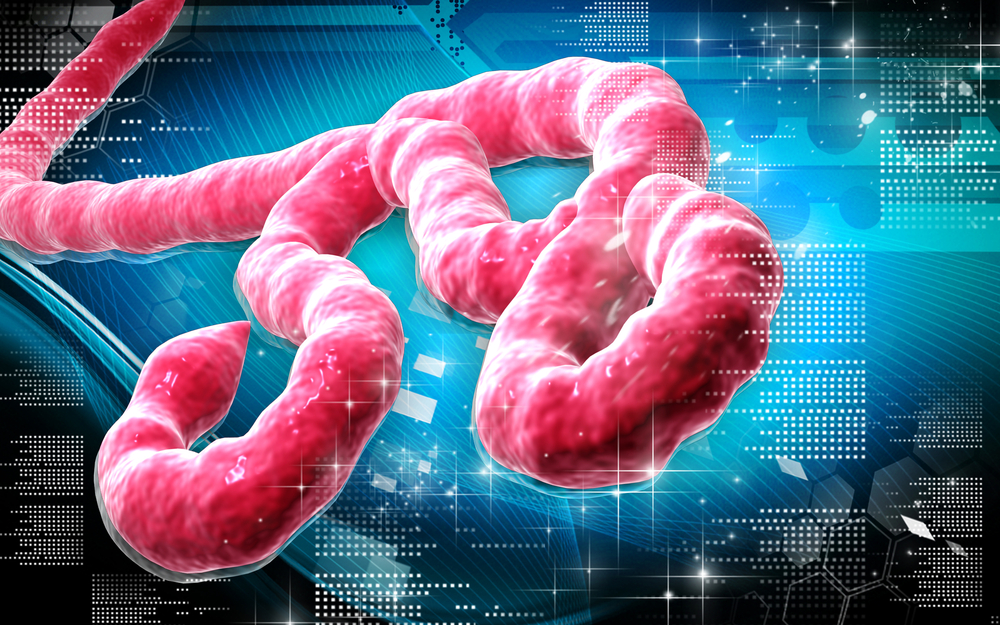Robert Montenegro
Ideafeed Editor
Robert Montenegro is a writer and dramaturg who regularly contributes to Big Think and Crooked Scoreboard. He lives in Washington DC and is a graduate of Loyola Marymount University in Los Angeles.
Twitter: @Monteneggroll. Website: robertmontenegro.com.
Research and testing of potential vaccines is a slow-moving process. As authorities strive to contain the current West African epidemic, scientists are already looking toward the next outbreak.
Two tech security researchers will present findings later this week indicating how and why USB as a technology is dangerously susceptible to malware and other breaches.
Conscience nocturnalism is a new wrinkle in the evolutionary development of mankind, a traditionally diurnal species.
People who spend exorbitant amounts of money pampering their dogs do so more to please themselves than their coddled canines. But it is really a bad thing?
A new study shows that when you pull an all-nighter or deprive yourself of sleep, you also put yourself at risk of developing false or inaccurate memories.
According to author David Zweig, “invisibles” are the unsung heroes of the workforce. Humble, driven and organized, invisibles are invaluable to companies that may not fully appreciate their expertise.
Pets Unstressing Passengers, or PUP, is a service that provides passengers at 20 major U.S. airports the opportunity to interact with trained therapy dogs.
It takes bright ideas and business savvy to make waves in Silicon Valley. It’s also important to not be a jerk.
Japanese Prime Minister Shinzo Abe believes the 2020 Tokyo Olympics would be enhanced by a concurrent skills competition between the world’s top robots. Would a Robot Olympiad be a silly stunt or a major step for 21st-century technology?
High demand coupled with poor yields have top chocolate companies raising wholesale prices. The future of the industry is bleak as social, economic, and environmental factors could cause cocoa bean production to crash. Although this isn’t exactly an economical depression, that’s the emotion most chocoholics are feeling right now.
In the next few decades, climate change is going to displace millions of people. Scott Leckie of Business Spectator has penned an article detailing his ideas on how world leaders need to prepare for this imminent crisis.
Motorola has introduced a temporary tattoo that can easily unlock your cell phone. Is digital body art something we can anticipate seeing more of in the future?
The hormone bursts that plague teenage boys can be both painful and frustrating. In order to prevent related flares of capricious action, parents should form a strategy to help their teens seek to improve rather than defend themselves.
Burt Bacharach was right; the look of love is in your eyes. New research reveals how eye movements can betray a person’s lustful or loving feelings.
A lunch-time meditation club at a North Philadelphia elementary school encourages third- and fourth-graders to take part in mindfulness exercises.
Why do young concertgoers shout their lungs out like they’re auditioning for a slasher flick? It’s partly because screaming is a customary ritual for such an event. It’s also because screaming is a primal form of sociological expression.
The Hanwa Eagles have introduced a cheering section of automated fans that can be controlled by fans at home. The struggling team hopes these new supporters will improve the game-day atmosphere.
Although ingredients in Gatorade and Powerbars may help intense athletes perform at their highest level, the rest of us ought to stay away.
The future of golf in the United States is dim due to a glaring lack of interest by the millennial generation. The reasons why young people don’t golf? It’s all about the green — money, not grass.
What if our shorter attention spans aren’t a growing weakness but rather an emblem of a more advanced, discerning brain?
Christian theologists have long grappled with how the discovery of extraterrestrial life would fit within the parameters of Christian history and ideology. Unsurprisingly, opinions on the matter are diverse.
If you’re checking Facebook instead of ordering food, posting on Instagram as your meal gets cold, or haranguing a bartender into letting you charge your phone… you may just be the bane of a restaurant owner’s existence.
A new gadget called the pd.id detects date rape drugs that may have been slipped inconspiculously into an unattended drink. The devices are battery powered and can be used repeatedly.
Scientists have long believed jealousy to be a chiefly human emotion based on assumptions that the it is the result of advanced cognitive capabilities. A new study authored by a UC San Diego psychologist argues against those assumptions with findings that dogs feel and exhibit jealousy just like humans do.
A new study by the Federal Reserve Bank of San Francisco finds that the wage growth gap between recent college grads and the rest of the workforce is wider than ever.
Many menus are meticulously designed not to inform the customer but to influence him/her to spend more money. The secret is psychology.
Ever find that you treat complete strangers better than friends or loved ones? It turns out there’s a psychological reason for it that involves one’s tolerance to close associates’ negative qualities.
A recently discovered crater in the Yamal peninsula region of Siberia has scientists scratching their heads as to how exactly it formed.
It turns out blowing into your old Nintendo cartridges probably did more harm than good. The reason? Human breath is gross.
Just as Shazam helps identify songs from snippets, a new technology developed by British scientists will be able to match bird calls with a virtual database. If made into an app, it would give a whole new definition to the phrase “tweeting.”





























